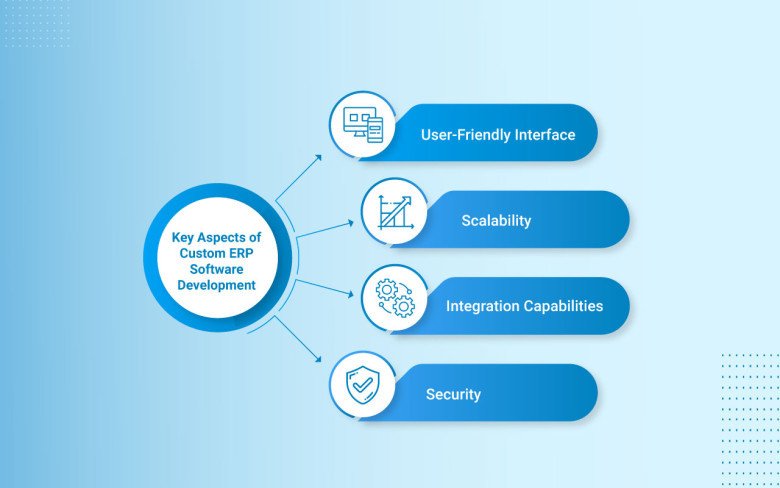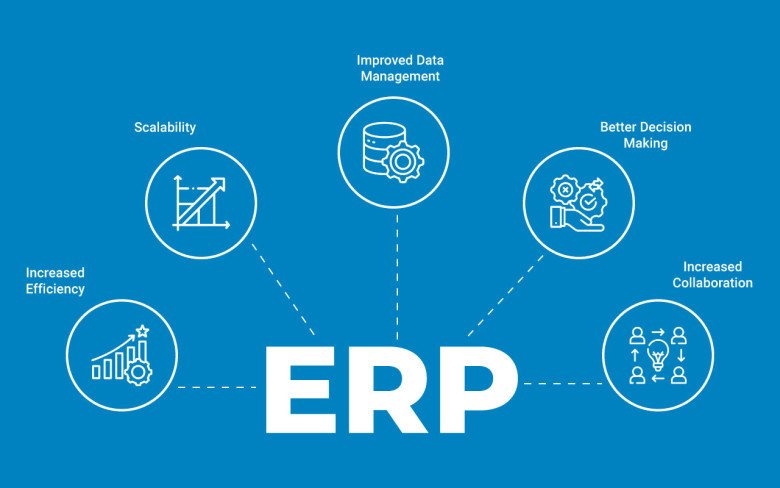views
Custom ERP software development is a crucial process that requires a lot of effort and planning. As a business owner or an IT manager, you need to ensure that your ERP system is tailored to your organization’s unique requirements, so you can effectively manage your business processes and improve your overall productivity.
In this article, we will cover everything you need to know about custom ERP software development, including its benefits, the development process, and how to choose the right custom ERP software development company.
Understanding Custom ERP Software Development
Custom ERP software development is the process of designing, building, and implementing an ERP system that is tailored to meet the unique needs of a business. The custom ERP system is developed to automate and streamline the organization’s business processes and provide accurate and timely information to management.
When embarking on custom ERP software development, the first step is to identify the business processes that need automation. This involves mapping out the entire business process and identifying areas that require improvement. Once you have identified these areas, you can start building the ERP system’s core functionalities.
Key Aspects of Custom ERP Software Development

- User-Friendly Interface
A user-friendly interface is critical in ensuring that the custom ERP software is adopted by the end-users. A good user interface should be intuitive, easy to navigate, and provide users with the necessary information in a clear and concise manner. The interface should also be customizable to meet the unique needs of the organization.
2. Scalability
The custom ERP system should be scalable to allow for growth and expansion of the organization. The system should be able to handle an increase in the number of users and transactions without compromising its performance.
3. Integration Capabilities
A custom ERP system should integrate seamlessly with other existing systems in the organization. This includes integration with accounting, HR, and CRM systems, among others. Integration capabilities ensure that data is shared across the organization, reducing data redundancy and improving data accuracy.
4. Security
Security is a critical aspect of custom ERP software development. The system should have robust security measures to protect sensitive data from unauthorized access or breaches. This includes encryption, access controls, and regular security audits.
Do you require bespoke ERP software development?
Sure, custom ERP has a lot of advantages, and it appears to be a good deal, but do you really need ERP? What kinds of businesses will benefit from it? Is it essential for your company? Let’s take a look:
- Is there a lot of manual labour in the company? Is it possible to automate this task?
- Is data access a difficult process? Is this affecting your ability to make decisions?
- Do you work with vendors from all over the world?
- Do you and your colleagues spend a lot of time gathering information?
- Do you know anything about the inventory or the day-to-day progress?
- Are you unable to access critical data while traveling or via mobile?
If the majority of your answers are YES, you must immediately customize ERP. It will simplify your life and increase the efficiency of your work. We understand that the costs are intimidating, but keep in mind that proper implementation will help your business improve productivity, which will lead to an increase in revenue.
Benefits of Custom ERP Software Development

Custom ERP software development offers many benefits for businesses of all sizes. Here are some of the key benefits:
- Increased Efficiency: Custom ERP software is designed to meet the specific needs of your business, which can help to streamline processes and increase efficiency.
- Scalability: Custom ERP software can be scaled to meet the needs of your growing business, which can help to future-proof your investment.
- Improved Data Management: Custom ERP software can help to improve data management by providing a centralized location for all data, which can help to reduce errors and increase accuracy.
- Better Decision-Making: Custom ERP software can provide real-time data and analytics, which can help businesses make informed decisions based on accurate data.
- Increased Collaboration: Custom ERP software can help to increase collaboration between different departments by providing a centralized location for data and communication.
The Development Process
The development process for custom ERP software is complex and requires careful planning and execution.

Here are the steps involved in the development process:
- Planning: The first step in the development process is planning. This involves defining the requirements for the software, creating a project plan, and selecting the development team.
- Design: The next step is designing the software. This involves creating a user interface, defining the data model, and creating the software architecture.
- Development: The development phase involves coding the software and integrating it with existing systems.
- Testing: Once the software is developed, it needs to be tested to ensure that it meets the requirements and works as intended.
- Deployment: The final step is deploying the software, which involves installing it on servers, configuring it, and training users.
Choosing the Right Custom ERP Software Development Company
Choosing the right custom ERP software development company is crucial to the success of your project.
Here are some tips for choosing the right company:
- Experience: Look for a company with experience in developing custom ERP software for businesses in your industry.
- Expertise: Look for a company with expertise in the technologies and platforms you need for your project.
- Reputation: Look for a company with a good reputation for delivering high-quality custom ERP software.
- Support: Look for a company that provides ongoing support and maintenance for your custom ERP software.
- Cost: The cost of customizing ERP software is determined by your company’s size, complexity of operations, and employee count. The average price ranges from $3,000 to $40,000.
Conclusion
Custom ERP software development is a time-consuming process that necessitates meticulous planning, development, and implementation. Custom ERP software has numerous advantages, including increased efficiency, scalability, better data management, better decision-making, and increased collaboration.`
When choosing a custom ERP software development company, it important to consider their experience, expertise, reputation, support, and cost.With the right development company and a well-planned project, custom ERP software can provide significant benefits for your business.
Tags: custom ERP software development, custom ERP software development company, ERP software development











